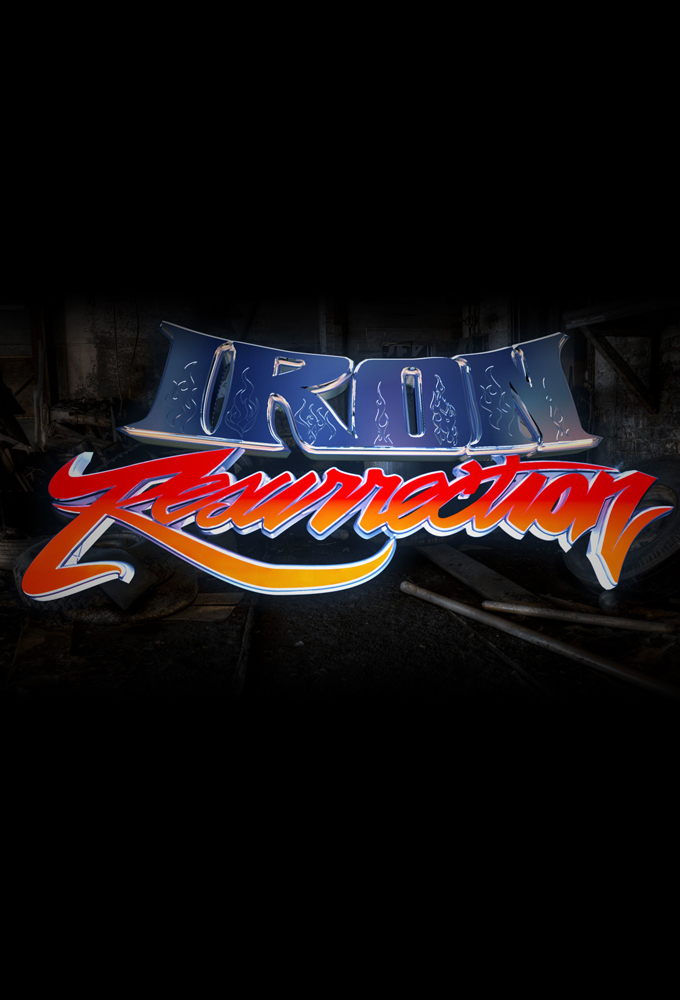Iron Resurrection Cancelled: The Untold Story Behind The Controversial Decision
Hey there, fellow gamers and anime enthusiasts! If you've been following the world of mecha anime and video games, you've probably heard about Iron Resurrection. This highly anticipated project had everyone buzzing, but guess what? It got cancelled. Yup, you read that right. And trust me, the story behind it is as wild as a boss fight in your favorite RPG. So, buckle up because we're diving deep into the chaos.
Iron Resurrection was supposed to be the next big thing in the mecha genre. Fans were already hyped about the game's promised blend of strategic combat and jaw-dropping visuals. But then, out of nowhere, the developers dropped the bombshell: the project was canned. It left a lot of us scratching our heads and wondering, "What the heck happened?"
Now, let's not just sit here and wallow in disappointment. We're going to break down why Iron Resurrection got cancelled, what it means for the industry, and how this decision could affect future projects. Think of this as a therapy session for your gamer heart, except we're not just talking feelings—we're talking facts.
Read also:Jonathan Lourie The Rising Star In Tech And Business
What Was Iron Resurrection?
Before we get into why Iron Resurrection got cancelled, let's rewind a bit and talk about what the game was all about. Iron Resurrection was envisioned as a mecha action-strategy game that aimed to combine the best elements of classic anime-inspired gameplay with modern graphics and mechanics. The developers promised epic battles, customizable mechs, and a deep narrative that would appeal to fans of both anime and strategy games.
It was supposed to be a game changer, folks. Imagine a world where you could command a fleet of mechs, strategize your moves, and engage in intense combat. Sounds like a dream, right? But as it turns out, dreams don't always become reality.
The Vision Behind the Game
Iron Resurrection wasn't just another mecha game. The developers had a clear vision: to create an immersive experience that paid homage to the classics while pushing the genre forward. They wanted to blend old-school charm with cutting-edge technology. But as we'll see later, achieving that balance is easier said than done.
Why Was Iron Resurrection Cancelled?
This is the million-dollar question, isn't it? Why did Iron Resurrection get cancelled? Well, the reasons are as complex as the game's mechanics. Let's break it down into bite-sized chunks so we can wrap our heads around it.
Financial Constraints
Money talks, and in the gaming industry, it often shouts. One of the main reasons Iron Resurrection got cancelled was financial constraints. Developing a game of this scale requires a massive budget, and unfortunately, the funds just weren't there. According to insiders, the project was eating up resources faster than expected, and the studio couldn't keep up.
Creative Differences
Another factor that played a role in the cancellation was creative differences. You see, game development is a collaborative effort, and sometimes, the vision of the team doesn't align. In the case of Iron Resurrection, it seems like there were disagreements about the direction of the game. Some team members wanted to stick to traditional gameplay, while others were pushing for more innovation. It's like trying to mix oil and water—sometimes it just doesn't work.
Read also:Hailey Welch Fanfic Dive Into The World Of Fictional Stories And Fancreated Adventures
The Impact on Fans
Let's be real for a second. The cancellation of Iron Resurrection hit fans hard. We were all ready to dive into this epic mecha adventure, and then, poof! It was gone. But the impact goes beyond just disappointment. It raises questions about the future of mecha games and the industry as a whole.
Broken Promises
When a game gets cancelled, it feels like a broken promise. Fans invest their time, energy, and excitement into these projects, and when they don't come to fruition, it's a blow. It's like getting hyped for a new season of your favorite show, only to find out it's been axed. Not cool, right?
The Industry's Reaction
So, how did the industry react to the cancellation of Iron Resurrection? Well, it was a mix of shock, disappointment, and a little bit of "we saw this coming." Let's take a closer look.
Developer Statements
After the cancellation, the developers released a statement explaining their decision. While it was appreciated that they were transparent, it didn't exactly ease the pain. They talked about the challenges they faced and assured fans that they were exploring other opportunities. But let's be honest, words can only do so much.
Community Support
On the bright side, the gaming community came together to show support for the developers. Fans started petitions, shared their thoughts on social media, and even donated to help the studio stay afloat. It's a testament to the power of community and the love for mecha games.
Lessons Learned
Every failure is a learning opportunity, and the cancellation of Iron Resurrection is no exception. Let's take a moment to reflect on what we can learn from this experience.
Importance of Planning
One of the key takeaways is the importance of proper planning. Developing a game is a complex process, and having a solid plan in place can make all the difference. From budgeting to creative direction, every aspect needs to be carefully considered.
Adaptability
Another lesson is the importance of adaptability. The gaming industry is constantly evolving, and developers need to be flexible enough to adapt to changes. Whether it's shifting trends or unexpected challenges, being able to pivot can save a project from failure.
Future Prospects
So, where does this leave the future of mecha games? Is there hope for a revival of Iron Resurrection, or are we doomed to a world without epic mech battles? Let's explore the possibilities.
Potential Revival
While the immediate future of Iron Resurrection is uncertain, there's always a chance for a revival. The gaming industry is full of surprises, and sometimes, projects that were thought to be dead make a triumphant return. Fans can only hope that the developers find a way to bring this vision to life.
New Projects
In the meantime, there are plenty of new mecha projects on the horizon. Developers are taking inspiration from Iron Resurrection and using its lessons to create even better games. It's a testament to the resilience and creativity of the industry.
Conclusion
And there you have it, folks. The story of Iron Resurrection cancelled is a tale of ambition, challenges, and the complexities of game development. While it's disappointing that the game didn't make it to fruition, it's also an opportunity to reflect on what went wrong and how we can do better in the future.
So, what can you do? Share this article with your friends, join the conversation on social media, and keep supporting the games and developers you love. Together, we can help shape the future of the mecha genre.
Thanks for sticking with me through this wild ride. Remember, even when things don't go as planned, there's always hope for the future. Now, go out there and game on!
Table of Contents
- Iron Resurrection Cancelled: The Untold Story Behind the Controversial Decision
- What Was Iron Resurrection?
- The Vision Behind the Game
- Why Was Iron Resurrection Cancelled?
- Financial Constraints
- Creative Differences
- The Impact on Fans
- Broken Promises
- The Industry's Reaction
- Developer Statements
- Community Support
- Lessons Learned
- Importance of Planning
- Adaptability
- Future Prospects
- Potential Revival
- New Projects
- Conclusion


